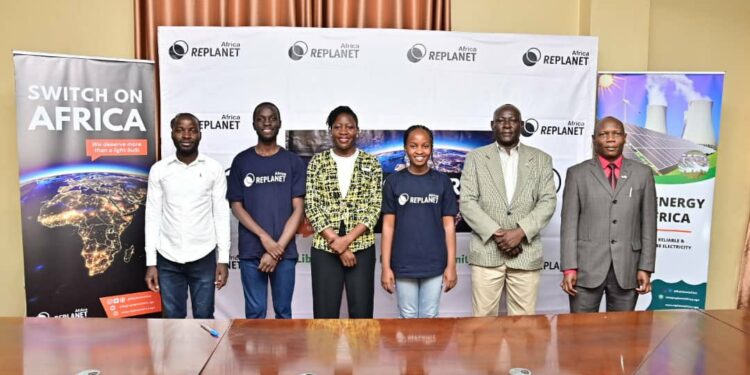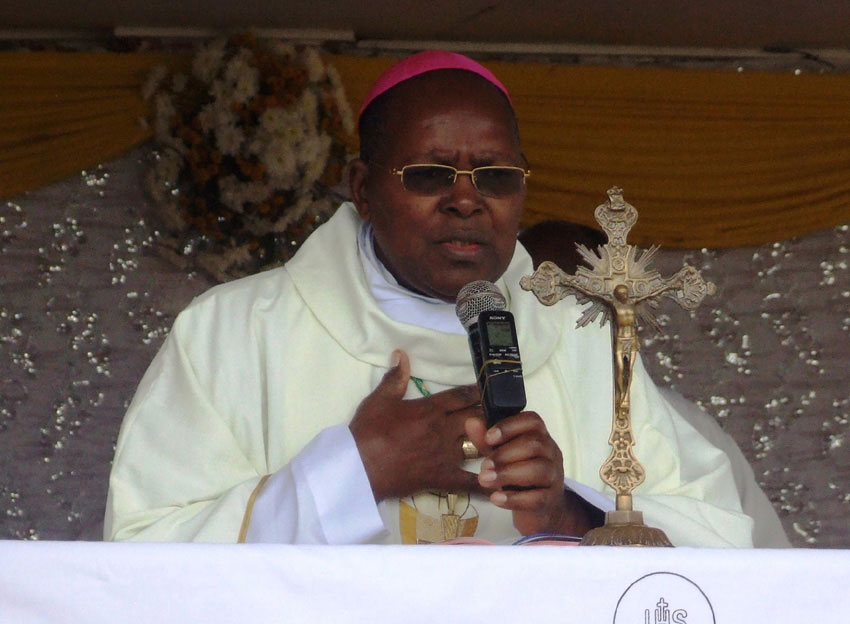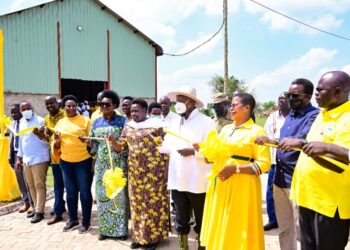Environmental experts in Uganda have sounded the alarm, warning that the very heart of the nation’s ecological balance is under imminent threat due to relentless deforestation driven by the insatiable demand for firewood and charcoal.
Should immediate action not be taken, to find sustainable substitutes for charcoal and firewood they say, Uganda’s path to climatic disaster seems inevitable.
Fore fronting this clarion call is Nanteza Patricia, the resolute Executive Director of RePlanet Africa, whose impassioned plea resonates from the heart of Kampala to the furthest reaches of the nation.
Patricia’s clarion call is clear: the government must urgently steer away from the perilous course of wood consumption, and instead, extend a lifeline to its citizens in the form of affordable electricity and subsidized gas cylinders for cooking.
Nanteza made this call on October 16th, while in Kampala as she launched the “Switch on Africa” campaign by RePlanet Africa, aimed at helping Ugandans access affordable electricity.
She emphasized that solar power, gas, and nuclear energy should be the most preferable alternatives to charcoal and firewood, stating that these have pushed the country’s forests to the verge of extinction.
“Extensive dependence on wood for fuel has brought our forests to the brink of extinction. If we aim to safeguard these vital ecosystems, we must forsake the use of charcoal and firewood. This is the crucial message we emphasize today,” She said.
“While the government has prohibited the use of charcoal, we must consider the plight of the common citizen. Thus, we earnestly implore both the government and gas cylinder vendors to offer electricity and cylinders to the populace at subsidized rates,” further articulated Nanteza.
The genesis of this alarm arises from the edicts recently pronounced by His Excellency Yoweri Museveni himself, during his address to the nation on September 7th, 2023.
Museveni, in a bid to safeguard the nation’s ailing ecosystems, decreed an embargo on licensing new factories within the delicate confines of swamps.
This bold move, aimed at staunching the insidious bleed of wetland degradation, serves as a testament to the urgency of the environmental crisis at hand.
Wamboga Peter, a stalwart advocate from the Science Foundation for Livelihood and Development, exhorts the government to perform an intricate balancing act.
Straddling the thin line between conservation and development, Peter implores the powers that be to usher in an era of subsidized household electricity, whilst unlocking the potential of geothermal energy—a treasure trove of untapped power that could potentially revolutionize Uganda’s energy landscape.
“You and I rely on charcoal and firewood, unless government introduces alternative measures, such that a significant portion of the population, around 80 percent, can afford electricity at subsidized rates, including options like geothermal electricity,” stated Wamboga.
In this hour of peril, these valiant conservationists beseech the global community, represented by none other than the United Nations, to rally behind the cause.
They advocate for a monumental wave of support and financial backing for citizen-driven initiatives, birthed with the singular purpose of preserving nature and wrestling climate change to its knees.
Over the years, Uganda has witnessed a rapid depletion of its green cover. Recent statistics from Global Forest Watch reveal that Uganda experienced a loss of 967 thousand hectares of tree cover between 2001 and 2021, signifying a 12 percent reduction in tree cover since the year 2000.
As Uganda teeters on the precipice of environmental calamity, the fervent hope lies in the swift adoption of these alternative energy sources, for they are the lifeblood that could yet rejuvenate a nation on the cusp of an irreversible ecological catastrophe.
Do you have a story in your community or an opinion to share with us: Email us at editorial@watchdoguganda.com













